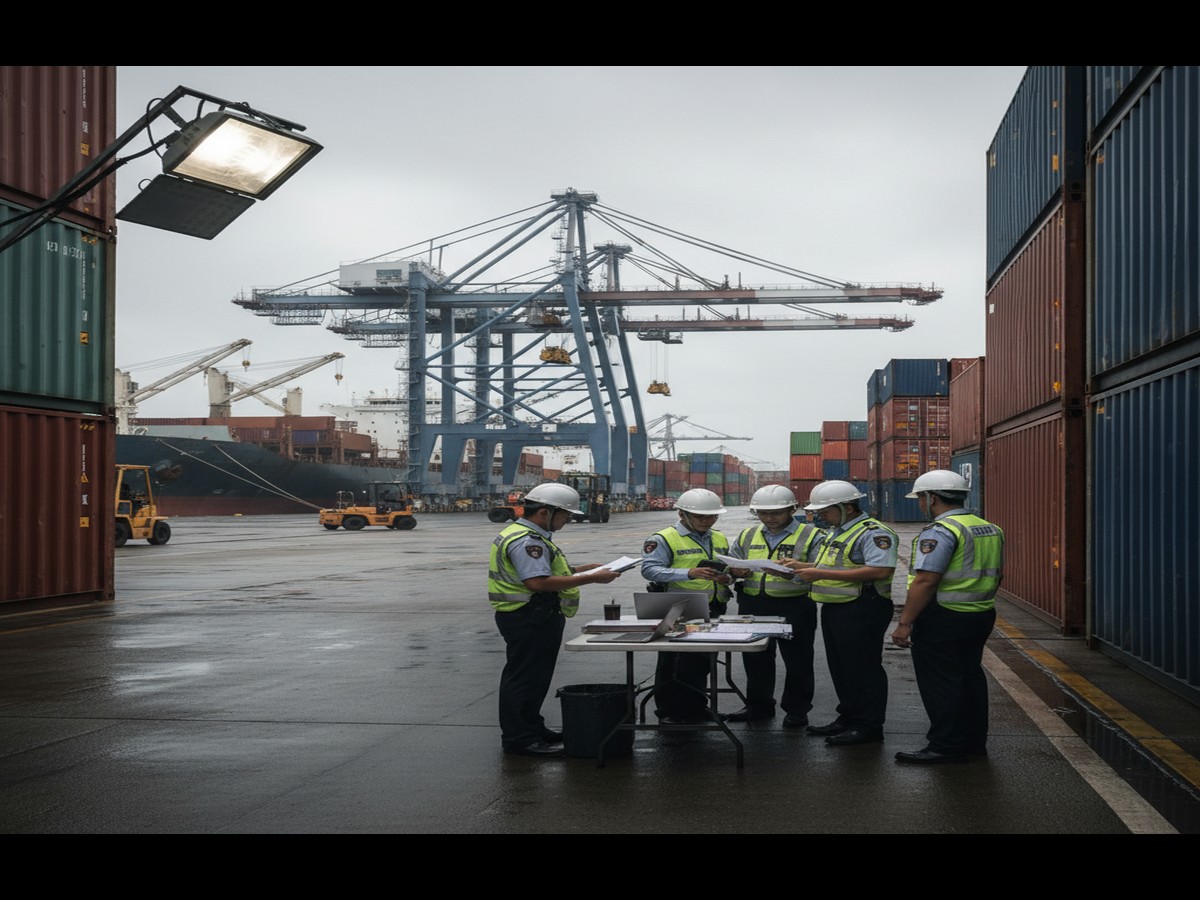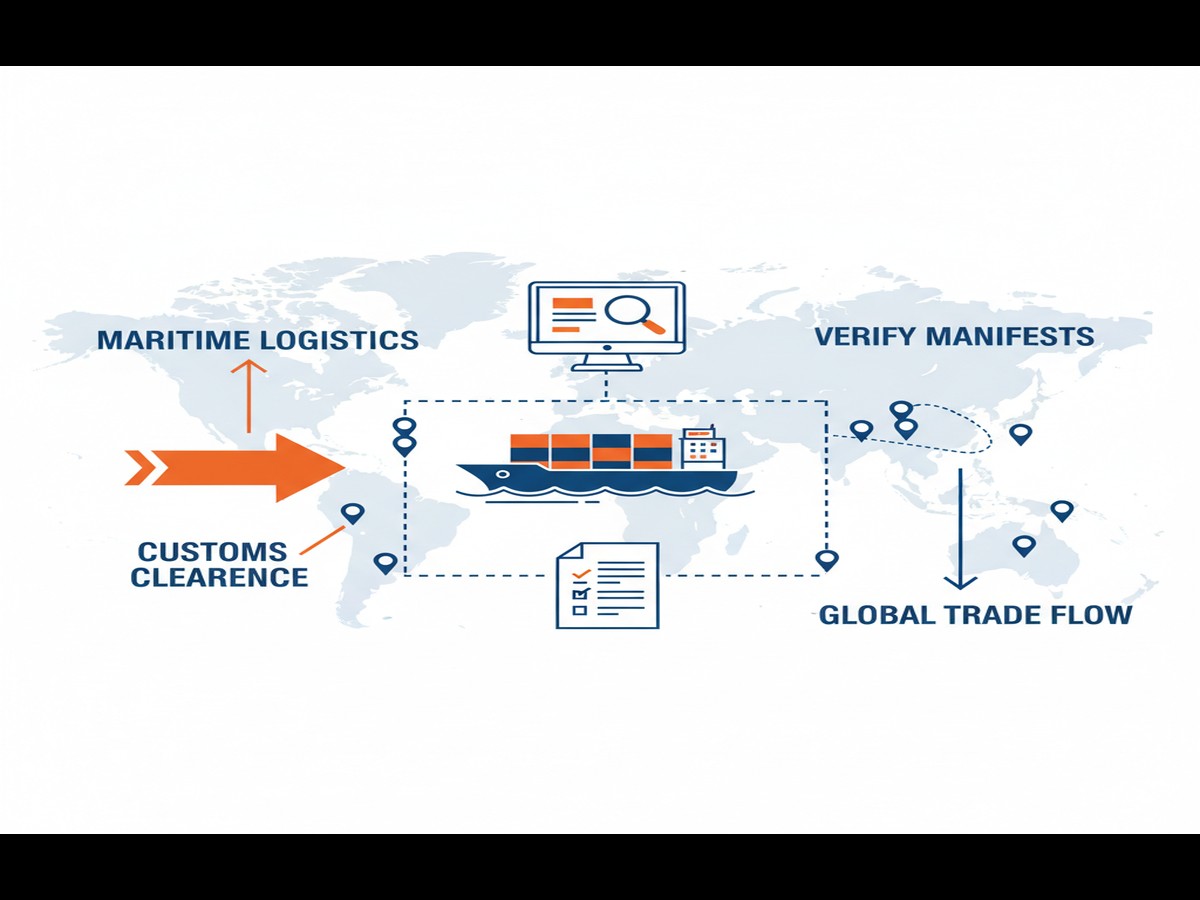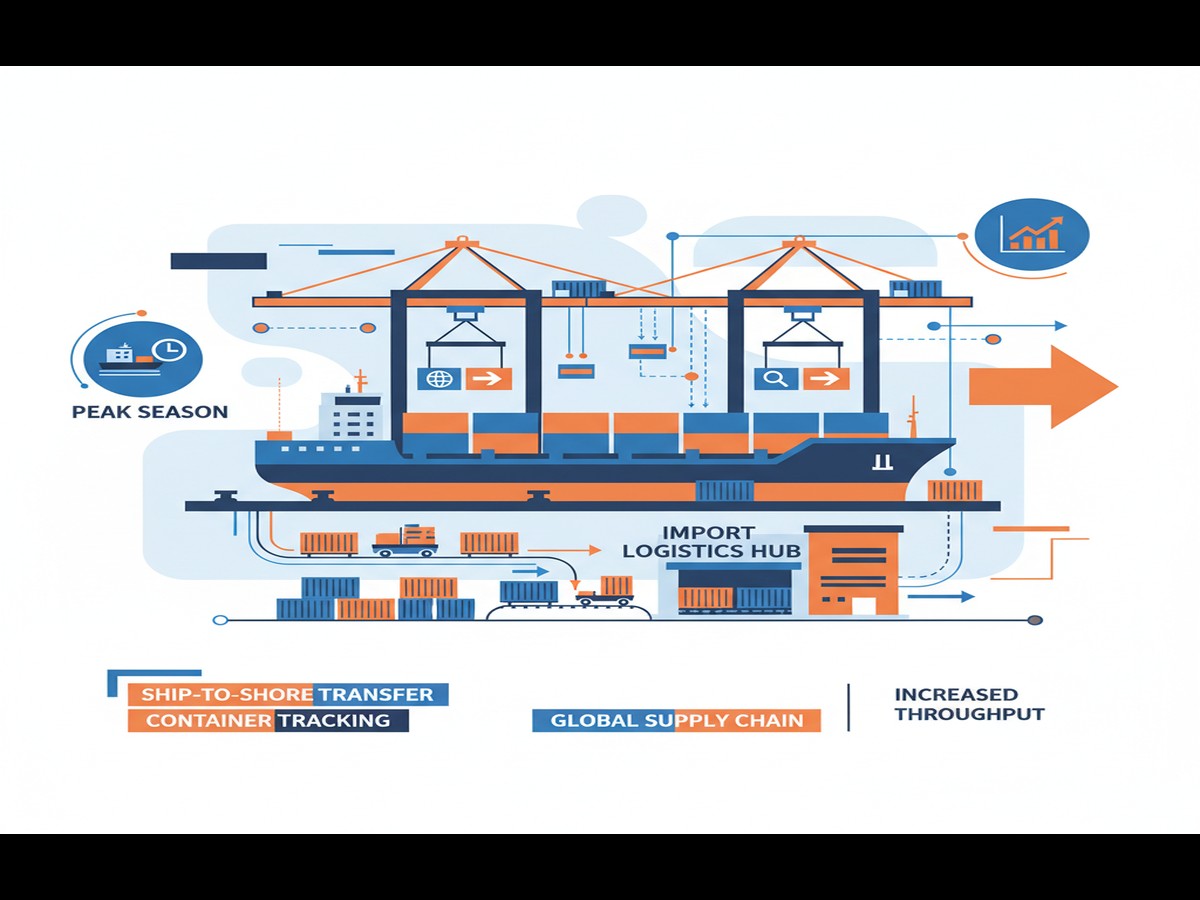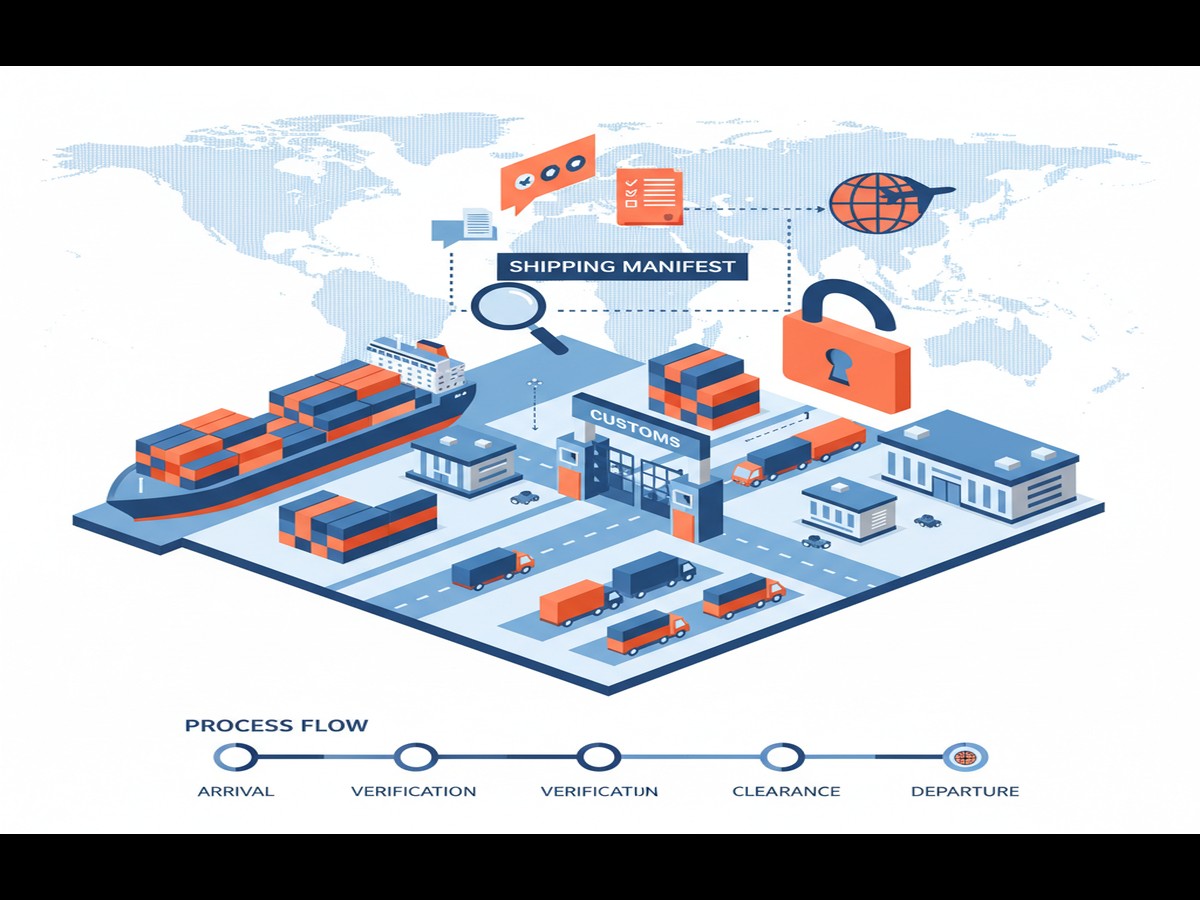Sea Freight Iraq: Unlock Shipping Secrets for 2025
Discover how sea freight iraq can transform your logistics operations. This article provides a comprehensive guide to maritime logistics in Iraq, focusing on local challenges and tailored solutions for businesses. Understanding this complex yet opportunity-rich market is essential for successful trade and supply chain management.
Efficient shipping is the lifeblood of commerce in the region, where success often depends on expert **freight forwarding**. This is the critical service of organizing and managing shipments on behalf of shippers, which includes negotiating carrier rates, arranging transport, and handling all logistical steps from origin to destination.
Navigating the country’s unique regulations also presents a significant hurdle for many companies. A deep understanding of **customs clearance** is non-negotiable; this is the formal process of preparing and submitting required documentation to facilitate a shipment’s export or import, ensuring full compliance with all governmental regulations.
A vital document in this process is the **bill of lading**. This legally binding contract between the shipper and the carrier details the type, quantity, and destination of the goods being carried, which also serves as a receipt of shipment and a document of title.
This guide explores every facet of sea freight iraq, from key players to cost factors. We will also delve into practical specifics often overlooked, such as navigating Incoterms for Iraqi shipments, managing inland logistics from key ports like Umm Qasr, and mitigating unique regional risks. Let’s dive into optimizing your strategy.
Understanding Sea Freight: An Overview
The Crucial Role of Sea Freight in Iraq’s International Trade and Economic Development
Iraqi ports handled over 22 million tons of cargo in the first half of 2025, indicating robust maritime growth [1][2][5]. This surge highlights the nation’s increasing trade activity, with 341 ships docking in January alone [1][2][5].
Southern hubs like Umm Qasr and Khor Al-Zubair in Basra are paramount. These ports process over 60% of Iraq’s marine freight, with Umm Qasr handling 1.8 million TEUs annually [1][3]. The logistics market in Iraq, encompassing both sea and air freight services, expanded by 6.9% in 2025, a clear sign of its growing economic significance [3][6]. This market is projected to exceed USD 10.4 billion by 2030, underscoring the strategic importance of sea freight Iraq [3][6].
Key Shipping Routes and Maritime Challenges in the Persian Gulf Region
The Persian Gulf region is a vital artery for global trade, with Iraq’s southern terminals playing a central role, often complemented by efficient international air freight for urgent shipments. Upgrades to facilities like the Al Basrah Oil Terminal (ABOT) in early 2025 boosted capacity to over 3.3 million bpd [7]. Exports averaged 3.2 million bpd in mid-2025, with VLCCs transporting 97.5% of crude from Basra [7].
Crude oil constitutes 97.9% of Iraq’s dirty cargo exports, centralizing sea freight at Basra ports [1][7]. This sector supports over 90% of national income, with 74 oil tankers docking offshore in January [1][7]. The General Company for Ports (GCPI) reported strong growth in H1 2025, enhancing infrastructure at Umm Qasr for larger vessels [1][2][4]. According to UNCTAD data, Iraq’s fleet comprised 74 ships (104,000 DWT) in 2023, reflecting ongoing maritime activity [4].
Types of Cargo and Containerization Strategies for Effective Iraqi Sea Logistics
Effective Iraqi sea logistics involve diverse cargo types, from vast crude oil shipments to industrial goods. The southern region around Basra leads with 80% of oil exports, while ports like Umm Qasr and Abu Flous (which saw 29 ships in January) handle critical industrial shipments [1][3][6]. Efficient containerization strategies are vital for streamlining these varied shipments.
The freight segment is expected to reach USD 11.3 billion by 2032, growing at a 6.3% CAGR [3][6]. This expansion is driven by ongoing infrastructure projects like the Grand Faw Port and ambitious oil production targets of 6 million bpd by 2028-2029 [3][6][7][8]. Such developments will significantly enhance future sea freight Iraq capabilities, supporting rising TEU and oil volumes.
Sea Freight Iraq The Importance of Sea Freight in Iraq’s Economy
Trade Expansion and Economic Growth Through Strategic Maritime Shipping Routes
The importance of sea freight to Iraq‘s economy is underscored by the significant surge in port cargo throughput. Iraqi ports handled over 22 million tons of cargo in the first half of 2025, demonstrating a robust increase in maritime activities. This surge is primarily driven by oil exports, which average 3.2 million bpd in mid-2025, despite OPEC quotas, highlighting the strategic role of sea freight in economic growth.
Ports like Umm Qasr and Khor Al-Zubair dominate, processing over 60% of Iraq’s marine freight. The expansion of these ports supports the country’s logistics market, projected to exceed USD 10.4 billion by 2030, reflecting a 6.9% growth in 2025. The growth trajectory is supported by investments in infrastructure, such as the ongoing construction of the Grand Faw Port, which is expected to enhance transshipment capabilities further. This is crucial as Iraq aims to position itself as a logistics hub in the Middle East, especially amid ongoing reconstruction efforts.
Revenue Generation and Job Creation in Iraq’s Maritime and Logistics Sectors
Sea freight in Iraq is not just about trade; it is a significant driver of revenue generation and job creation. The logistics sector’s growth, projected to reach USD 11.3 billion by 2032 with a 6.3% CAGR, indicates a thriving market ripe for employment opportunities. The maritime sector alone supports thousands of jobs, from port operations to logistics management, underscoring its vital role in the economy.
Moreover, the increase in transport services exports, which rose by 34.4%, illustrates the sector’s expanding influence on Iraq’s economic landscape. As Iraq’s logistics market continues to grow, the demand for skilled labor will likely increase, presenting new job opportunities for the local population.
Supporting Critical Import and Export Needs for Industrial and Consumer Markets
Sea freight in Iraq plays a crucial role in supporting the import and export needs of both industrial and consumer markets. With over 1.8 million TEUs processed annually at Umm Qasr, the capacity to handle diverse cargo types facilitates trade across various sectors. This capability is essential for meeting the demands of Iraq’s growing economy, which relies heavily on imports for consumer goods and industrial materials.
The strategic location of southern ports, processing 80% of oil exports, underscores the critical nature of maritime transport in supporting Iraq’s economic stability. As infrastructure continues to improve, the logistics market is expected to thrive, further enhancing Iraq’s position as a key player in regional trade. The ongoing upgrades at facilities like the Al Basrah Oil Terminal, capable of exceeding 3.3 million bpd, will ensure that sea freight remains a backbone of Iraq’s economy. For detailed insights into Iraq’s maritime statistics, visit the UNCTAD Data Hub.
Key Players in Iraq’s Sea Freight Industry
Governmental Bodies and Port Authorities Driving Maritime Infrastructure Development
The sea freight iraq industry is significantly bolstered by governmental bodies like the General Company for Ports of Iraq (GCPI). In the first half of 2025, Iraqi ports reported a robust increase, handling over 22 million tons of cargo, with 341 ships docking in January alone, as noted by [Iraqi News]. This surge is largely attributed to oil exports and imports, with key ports like Umm Qasr and Khor Al-Zubair processing more than 60%+ of Iraq’s air freight Iraq marine freight.
The port of Umm Qasr is particularly notable, processing approximately 1.8 million TEUs annually. This infrastructure supports Iraq’s position as a vital trade hub in the Middle East. As the logistics market continues to expand, projected to surpass USD 10.4 billion by 2030, the GCPI is focused on upgrading facilities to accommodate larger vessels and enhance operational efficiency. The ongoing construction of the Grand Faw Port aims to reduce reliance on transshipment, further strengthening Iraq’s maritime capabilities.
Major International Shipping Lines Facilitating Global Trade Routes to Iraq
In the realm of sea freight iraq, international shipping lines play a crucial role. The recent upgrades at southern terminals, particularly at the Al Basrah Oil Terminal (ABOT), now exceed a capacity of 3.3 million bpd. In mid-2025, oil exports averaged 3.2 million bpd, with a staggering 97.5% of crude exports facilitated by Very Large Crude Carriers (VLCCs) from Basra, according to research data. This reliance on shipping lines not only boosts Iraq’s economy but also integrates it into global trade networks.
Moreover, with 74 oil tankers reported to have docked offshore in January, the efficiency of these shipping lines is paramount. The significant percentage of Iraq’s national income—over 90%—is derived from these oil exports, emphasizing the importance of maritime logistics. As Iraq enhances its port infrastructure, international shipping lines are likely to expand their services, further streamlining logistics in the region. For more insights on market trends, refer to the Iraq Cargo Shipping Market.
Local Freight Forwarders and Logistics Companies Streamlining In-Country Distribution
Local freight forwarders and logistics companies are essential in optimizing the sea freight iraq sector. With the logistics market growing at a rate of 6.9% in 2025, these companies are positioned to play a significant role in meeting the increasing demand for efficient distribution. The total logistics market is projected to reach USD 11.3 billion by 2032, with a compound annual growth rate (CAGR) of 6.3% driving this expansion.
As the southern region around Basra accounts for 80% of oil exports, local logistics firms are pivotal in managing the flow of goods, ensuring that industrial shipments are handled efficiently. The advancements in port operations, including the integration of digital systems at Khor Al-Zubair, further enhance local capabilities. This growth trajectory points to a promising future for Iraq’s logistics landscape, supporting the nation’s ambition to become a regional hub for trade.
Need Reliable Delivery Services?
Get a free quote from Direct Drive Logistic today. Fast, secure, and professional logistics solutions tailored to your needs.
Sea Freight Iraq Navigating Regulations for Sea Freight in Iraq
Key Iraqi Customs Procedures and Import/Export Documentation Requirements
Navigating the complexities of **sea freight Iraq** demands a thorough understanding of local customs procedures. Iraqi ports processed over 22 million tons of cargo in the first half of 2025, demonstrating robust maritime activity [1][2][5]. This significant volume underscores the need for meticulous import and export documentation. Southern hubs like Umm Qasr and Khor Al-Zubair dominate, handling over 60% of marine freight [1][3].
Proper documentation is crucial for efficient customs clearance. In January alone, 341 ships docked in Iraqi ports, highlighting the constant flow of goods [1][2][5]. Freight forwarding Iraq ensures all necessary paperwork, from bills of lading to customs declarations, adheres to Iraqi regulations. This proactive approach helps mitigate delays for your **sea freight Iraq** shipments.
Understanding Port Authority Guidelines and Shipping Compliance in Iraqi Waters
Compliance with port authority guidelines is paramount for successful **sea freight Iraq** operations. Ports under the General Company for Ports (GCPI) reported strong growth in H1 2025, with ongoing expansions at Umm Qasr for larger vessels [1][2][4][5][6]. Umm Qasr alone handles 1.8 million TEUs annually, showcasing its vital role in trade [1][3]. Adhering to specific guidelines is essential for all vessels.
Southern terminals are critical, especially for oil exports. The Al Basrah Oil Terminal (ABOT) was upgraded in early 2025 to exceed 3.3 million bpd capacity [7]. Exports averaged 3.2 million bpd in mid-2025, with VLCCs handling 97.5% of crude from Basra [7]. Understanding these specific operational requirements for **sea freight Iraq** ensures smooth vessel movement and cargo handling. This includes regulations for the 74 oil tankers that docked offshore in January [1][7]. Further details on oil flows are available via industry reports.
Staying Updated on Evolving Trade Policies and Regulatory Changes in Iraq
The logistics landscape in Iraq is dynamic, necessitating constant vigilance regarding trade policies. Iraq’s logistics market grew 6.9% in 2025, projected to surpass USD 10.4 billion by 2030 [3][6]. This growth is fueled by reconstruction efforts and positions Iraq as a key Middle East hub. Staying informed about regulatory shifts directly impacts the efficiency of **sea freight Iraq**.
The freight segment alone is projected to reach USD 11.3 billion by 2032, growing at a 6.3% CAGR [3][6]. Major infrastructure projects like the Grand Faw Port will further reshape trade routes and regulations [3][6][7][8]. Iraq logistics actively monitors these changes, ensuring your **sea freight Iraq** operations remain compliant and cost-effective. We adapt strategies to new policies, including those affecting the southern region, which leads with 80% of oil exports [1][3][6]. For comprehensive market analysis, explore this Iraq cargo shipping market.
Choosing the Right Sea Freight Service
Key Aspects of Choosing the Right Sea Freight Service
Selecting the optimal sea freight Iraq service requires careful consideration of several critical factors. Iraqi ports handled over 22 million tons of cargo in the first half of 2025, demonstrating robust maritime activity [1][2][5]. This significant volume highlights the need for reliable freight forwarding Iraq partners. Understanding your cargo type, volume, and urgency is paramount for efficient shipping.
Umm Qasr and Khor Al-Zubair in Basra dominate marine freight, processing over 60% of Iraq’s total [1][3]. Umm Qasr alone handles 1.8 million TEUs annually, making port selection a strategic decision [3]. Consider the specific port capabilities and their connection to your final destination. Iraq’s logistics market grew 6.9% in 2025, reflecting expanding infrastructure and service options [3][6].
Step-by-Step Process Overview for Sea Freight Iraq
Begin by accurately assessing your shipment’s dimensions, weight, and specific handling requirements. This dictates the vessel type and container size needed for your sea freight Iraq. Southern terminals like Al Basrah Oil Terminal (ABOT) upgraded in early 2025 to exceed 3.3 million bpd capacity, showcasing the region’s robust infrastructure [7]. Exports averaged 3.2 million bpd in mid-2025, with VLCCs handling 97.5% of crude from Basra [7].
Next, research reputable freight forwarders specializing in the Middle East. Look for providers with a strong track record in Iraq and transparent pricing. Iraqi ports recorded significant growth in maritime cargo handling, with 341 ships docking in January alone [1][2]. This indicates a busy and dynamic shipping environment. Ensure your chosen partner can navigate complex customs procedures and provide comprehensive tracking for your valuable cargo. For more insights into the region’s logistics landscape, explore the AHK Iraq market brief.
Expert Tips and Recommendations for Sea Freight Iraq
Partnering with an experienced logistics provider is crucial for successful sea freight Iraq operations. They possess the expertise to manage documentation, optimize routes, and mitigate potential delays. Iraq’s logistics market is projected to surpass USD 10.4 billion by 2030, with the freight segment reaching USD 11.3 billion by 2032 at a 6.3% CAGR [3][6]. This growth indicates increasing sophistication in the market.
Leverage technology for real-time visibility and communication with your chosen forwarder. This ensures transparency throughout the entire shipping process. The ongoing construction of Grand Faw Port will further enhance Iraq’s position as a Middle East hub, cutting transshipment reliance [1][2][4]. Strategic planning around these developments ensures future-proofed sea freight Iraq solutions. Always prioritize clear communication and detailed contracts to avoid unforeseen issues.
Cost Factors in Sea Freight Shipping to Iraq
Key Aspects of Cost Factors in Sea Freight Shipping to Iraq
Navigating the complexities of cost factors for sea freight to Iraq requires understanding a dynamic market. Iraqi ports handled over 22 million tons of cargo in the first half of 2025, demonstrating robust maritime activity according to [1][2][5]. This significant volume impacts pricing for sea freight Iraq operations. Major southern hubs like Umm Qasr and Khor Al-Zubair process over 60% of Iraq’s marine freight, with Umm Qasr alone handling 1.8 million TEUs annually [1][3]. These figures underscore the importance of port efficiency in overall shipping costs.
Oil export infrastructure upgrades also play a role in sea freight Iraq expenses. Southern terminals, including Al Basrah Oil Terminal (ABOT), exceeded 3.3 million bpd capacity in early 2025 [7]. Exports averaged 3.2 million bpd in mid-2025, primarily using VLCCs for 97.5% of crude from Basra [7]. This high volume of dirty cargo exports, representing 97.9% of Iraq’s total, centralizes sea freight activity and influences vessel availability and port charges [1][7]. Understanding these operational scales is crucial for accurate cost projections in sea freight to Iraq. For more insights into the region’s logistics, explore this Iraq logistics market brief.
Step-by-Step Process Overview for Sea Freight to Iraq
The process for sea freight Iraq involves several key stages, each contributing to the final cost. Initial planning includes cargo classification and route selection, often utilizing the dominant southern ports. In January alone, 341 ships docked at Iraqi ports, highlighting the consistent demand for sea freight services [1][2][5]. Choosing between Full Container Load (FCL) or Less than Container Load (LCL) directly impacts freight rates and transit times.
Port charges, terminal handling fees, and customs duties are significant cost components when shipping via sea freight to Iraq. The General Company for Ports (GCPI) reported strong H1 2025 growth, with ongoing expansions at Umm Qasr to accommodate larger vessels [1][2][4][5]. These infrastructure improvements can streamline operations but also introduce varying fee structures. The logistics market in Iraq grew 6.9% in 2025, projected to surpass USD 10.4 billion by 2030, indicating a maturing market with competitive pricing for sea freight Iraq services [3][6].
Expert Tips and Recommendations for Cost-Effective Sea Freight Iraq
To optimize costs for sea freight to Iraq, proactive planning, including efficient warehousing Iraq, and strategic partnerships are essential. Engage with reputable freight forwarders who possess deep knowledge of Iraqi customs regulations and port operations. For instance, Umm Qasr and Abu Flous handled 29 ships in January, emphasizing their role in industrial shipments [1][3]. Leverage their expertise to navigate the complexities and minimize unforeseen expenses.
Consider cargo insurance to mitigate risks, particularly given the large volumes. Iraq’s transport services exports increased by +34.4%, reflecting growing capacity and service offerings [6]. Future developments, such as the Grand Faw Port construction and the Basra-Shalamcheh rail link, promise to further enhance connectivity and potentially reduce long-term costs for sea freight to Iraq [3][6][7][8]. The freight segment is projected to reach USD 11.3 billion by 2032 with a 6.3% CAGR, suggesting continued investment and improved efficiency in the sector [3][6]. Staying informed on these infrastructure projects can yield significant cost savings for your sea freight Iraq shipments.
Best Practices for Packing and Labeling
Selecting Robust Packaging Materials and Internal Securing Techniques
Proper packaging is the foundation of successful freight forwarding Iraq. With Iraqi ports handling an incredible 22 million tons of cargo in the first half of 2025 alone, the physical stress on shipments is immense. Your choice of materials must withstand long transit times and multiple handling points.
Opt for heavy-duty, double-walled corrugated boxes, custom wooden crates, or heat-treated pallets. These materials provide the structural integrity needed to protect goods within a complex supply chain. The sheer volume, with ports like Umm Qasr processing 1.8 million TEUs annually, means your cargo will be stacked and moved by heavy machinery.
Internal securing is just as critical for any sea freight iraq shipment. Use high-quality dunnage like foam inserts, air pillows, or bubble wrap to fill empty spaces and prevent items from shifting. For larger freight, bracing and blocking techniques are essential to immobilize the cargo inside the container, protecting it during turbulent sea conditions.
As the logistics market experiences a 6.9% growth surge, the standards for cargo preparation are rising. Investing in superior packaging is a small price to pay to ensure your goods arrive intact. This proactive step is vital for navigating the busy terminals that serve the booming sea freight iraq sector.
Ensuring Accurate, Durable, and Compliant Labeling
Accurate labeling is non-negotiable for efficient Iraq logistics. Port operations are becoming increasingly digitized, and clear labels are crucial for customs clearance and final delivery. Each package must display the consignee’s full name and address, country of origin, port of entry, and final destination.
Labels must be durable enough to survive the journey. Use weather-resistant materials and permanent adhesive to prevent them from peeling off or becoming illegible due to moisture or friction. With 341 ships docking in a single month, your shipment competes for attention; clear, scannable labels expedite its movement through customs and sorting facilities.
Compliance is key to avoiding costly delays in your sea freight iraq logistics. All labels should include package weight in kilograms, dimensions, and handling instructions represented by universal symbols.
The Iraqi freight market is projected to hit USD 11.3 billion by 2032, a testament to its growing importance. Precise labeling supports this growth by enabling faster processing and reducing errors. For any company leveraging sea freight iraq, meticulous attention to labeling detail is a strategic advantage that protects your investment and reputation.
Frequently Asked Questions
▼ What is sea freight in Iraq, and how does it work?
Sea freight in Iraq involves the transportation of goods via ocean vessels, primarily through the Port of Basra. The process typically includes four key steps: 1) Booking a container, 2) Preparing shipping documents, 3) Loading cargo onto the vessel, and 4) Customs clearance upon arrival. The average transit time from major ports to Iraq is around 10-20 days, depending on the destination. Choosing sea freight Iraq is beneficial for larger shipments due to cost-effectiveness compared to air freight.
▼ How much does sea freight to Iraq typically cost?
The cost of sea freight to Iraq varies based on factors such as shipment size, destination, and service type. Generally, costs can range from $200 to $500 for a 20-foot container. Additional charges for customs clearance, port handling, and insurance can apply, potentially adding 10-20% to the total cost. For accurate pricing, it’s advisable to obtain quotes from logistics providers specializing in sea freight Iraq to ensure competitive rates.
▼ How long does sea freight take to reach Iraq?
The transit time for sea freight to Iraq typically ranges from 10 to 30 days, depending on the departure port and shipping line used. For instance, shipments from Europe may take about 20 days, while those from Asia can take up to 30 days. Factors such as weather conditions and port congestion at the Port of Basra can also affect delivery times. It’s essential to plan for possible delays when scheduling shipments.
▼ What documents are required for sea freight shipping to Iraq?
Shipping goods via sea freight to Iraq requires several key documents: 1) Bill of Lading, 2) Commercial Invoice, 3) Packing List, 4) Certificate of Origin, and 5) Import License (if applicable). These documents facilitate customs clearance and ensure compliance with Iraqi regulations. Proper preparation of these documents can streamline the shipping process and reduce delays at the port.
▼ Why choose sea freight over air freight for shipments to Iraq?
Sea freight is often more cost-effective than air freight, especially for larger shipments. For example, transporting a 40-foot container via sea may cost approximately $1,000, while air freight for the same volume could exceed $5,000. Additionally, sea freight allows for the transport of bulk cargo, which is more efficient for businesses needing to move large quantities. This makes sea freight Iraq a preferred choice for many logistics needs.
▼ What are the main ports for sea freight in Iraq?
The primary port for sea freight in Iraq is the Port of Basra, which handles the majority of the country’s import and export activities. Other notable ports include Umm Qasr and Khor al-Zubair. These ports are equipped to handle various cargo types, including containerized goods and bulk shipments. Understanding the port facilities and their capabilities is crucial for optimizing logistics strategies in Iraq.
▼ How does customs clearance work for sea freight in Iraq?
Customs clearance for sea freight in Iraq typically involves a process of 3-5 business days. Importers must submit required documentation, including the Bill of Lading and Commercial Invoice, to the Customs Authority. A customs agent can assist with tariff classification and ensuring compliance with local regulations. It’s recommended to engage experienced customs brokers to expedite the clearance process and avoid potential delays.
▼ What types of cargo can be shipped via sea freight to Iraq?
Sea freight in Iraq accommodates a wide range of cargo types, including general merchandise, heavy machinery, and bulk commodities like oil and construction materials. Containerized shipments are common for consumer goods, while bulk carriers are used for raw materials. Understanding the specific requirements for different cargo types is essential for effective logistics planning and execution in Iraq.
▼ What challenges should I be aware of when shipping sea freight to Iraq?
Shipping sea freight to Iraq can present challenges such as port congestion, bureaucratic customs processes, and security concerns. For instance, delays at the Port of Basra can occur due to high traffic volumes, impacting delivery schedules. Additionally, navigating customs regulations requires thorough documentation and compliance. Collaborating with a reputable logistics provider can help mitigate these challenges and ensure smoother operations.
▼ How can I track my sea freight shipment to Iraq?
Most logistics companies offer online tracking systems that allow you to monitor your sea freight shipment to Iraq in real-time. Upon booking, you will receive a tracking number that you can use on the shipping company’s website. This enables you to view the current status of your shipment, estimated arrival times, and any potential delays. Staying informed is crucial for effective supply chain management.
▼ What are the payment terms for sea freight shipments to Iraq?
Payment terms for sea freight shipments to Iraq can vary based on the logistics provider and the nature of the transaction. Typically, companies may require payment in advance or a deposit before shipping. Some may offer terms like 30-60 days post-delivery, depending on the business relationship. It’s essential to clarify payment terms upfront to avoid misunderstandings and ensure smooth logistics operations.
▼ Can I insure my sea freight shipment to Iraq?
Yes, insuring your sea freight shipment to Iraq is highly recommended to protect against potential losses or damages. Marine cargo insurance typically covers risks associated with transport, including theft, damage, and loss due to accidents. Premiums generally range from 0.5% to 2% of the total cargo value. It’s advisable to discuss insurance options with your logistics provider to determine the best coverage for your needs.
Conclusion
Successful sea freight in Iraq demands strategic navigation through complex maritime and customs landscapes. The intricate web of international shipping regulations, regional challenges, and infrastructure limitations requires a sophisticated approach that balances operational efficiency with deep local knowledge of Iraq’s unique logistics environment.
Start by conducting a comprehensive audit of your current sea freight iraq routes, focusing on optimizing customs clearance processes and identifying potential cost-reduction opportunities. Engage with logistics experts who understand the nuanced documentation requirements and can help streamline your maritime shipping strategies, minimizing delays and reducing unnecessary expenses.
Direct Drive Logistics stands as your premier partner in Iraqi maritime shipping, leveraging 15+ years of specialized experience across Kurdistan and southern Iraq. Our local teams provide unparalleled expertise in sea freight navigation, offering customized solutions that guarantee seamless cargo movement, reduced transit times, and significant cost savings. Contact our Iraq logistics specialists today at +964 [phone number] to transform your shipping strategy.
⭐500+Deliveries Completed✓ISO 9001Certified🕐24/7Support Available
Streamline your international sea freight operations in Iraq with Direct Drive Logistics’ expert, end-to-end shipping solutions that minimize transit times and reduce costs. Take the first step towards seamless maritime logistics by calling our dedicated team at (+964) 750 953 9899 for a personalized consultation and competitive shipping quote today.
📞 Contact Us for a Consultation
📍
Location
Direct Drive Logistic
MRF Quattro towers, Block A-29-1
Erbil, Kurdistan Region
Phone & WhatsApp
Message on WhatsApp
✉️
Click to send email →





